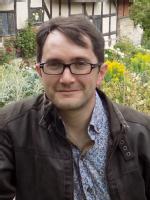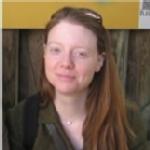MA in English and Drama

Explore drama, literature, performance and theatre history
Our English and Drama MA offers an exciting opportunity to specialise in the study of drama, theatre and literary studies.
In this course, you will primarily study dramatic texts and the history of theatre, working with leading experts in Shakespeare and early modern drama, theatre history, and modern performance theory and practice. You can also choose from a wide range of optional modules across the field of literary studies, combining your interest in drama with topics including postcolonial and world literature, and critical and cultural theory.
You have the choice of completing a research dissertation on a topic of your choice, or alternatively, taking up a professional placement or an extended practical project. These can help you develop your professional network and practical skills for the future career you have in mind.
You will enjoy easy access to the Royal Shakespeare Company at Stratford, and major theatres in Coventry, Leicester and Birmingham. On campus, Warwick Arts Centre, the largest of its kind outside London, is visited by companies of international standing specialising in both the established repertoire and new work.
Our warm and vibrant research community is one of the largest in the UK, with around 110 postgraduates every year. We also offer funding for postgraduate study, and career development support during your time here.
By the end of the course, you'll be well-positioned for further study or employment with the transferable skills you will develop.
Key facts
Qualification: Master of Arts (MA)
Duration: 1 year full-time, 2 years part-time
Next intake: October 2025
Contact: Dr Stephen Purcell
Autumn term:
- Research Methods
- Core module: Drama and Performance Theory
- 1 x 30 CAT module, assessed by coursework*
Spring term:
- 2 x 30 CAT modules, assessed by coursework*
Spring/Summer terms:
- 16,000 word dissertation (worth 60 CATS) OR take a professional placement OR carry out an extended practical project
* You can take one 30 CATS module from outside of the department, including the Institute for Advanced Teaching and Learning (IATL).
Modules on offer for the year 2022–2023 include:
The Development of English Drama
Petrofiction: Studies in World Literature
World Literature and the Anthropocene
Critical Theory, Culture, Resistance
Fundamentals of World Literature
Theory from the Margins: Postcolonialism and the Radical Tradition
Charles Dickens: Novels, Journalism & Adaptation
Core module
Drama and Performance Theory: The aim of this module is to introduce students to drama and performance theory, by giving them the opportunity to explore and discuss some of the methodologies, debates and conceptual approaches to drama and performance, both current and historical. It will encourage students to consider these methodologies when reading primary material, and to this end five key primary texts are allotted for the module which will encourage dialectical consideration of theory and practice. There will normally be a tie-in theatre trip late in the course.
Optional modules
These vary from year to year, but the lists below gives you a flavour of the kinds of topics likely to be open to you. You will take at least two modules from our range of options, updated for 2020–2021 above.
Outside modules
You may also take one 30 CATS module from outside the Department as part of your course.
For example, you might want to study a topic from the Warwick Writing Programme, History, Film, Modern Languages, or Philosophy, or the modules offered by the Institute for Advanced Teaching and Learning (IATL).
Dissertation
Alongside your four modules, you also get the chance to pursue your own distinct research interests in the dissertation (16,000 words). This is an opportunity to develop a new idea from one of your modules into something longer. Alternatively, you could write on a subject or a figure that has always fascinated you. You can write about anything, although your subject must fall within the interests of an available member of the teaching staff and must be feasible in terms of resources to be accepted.
People often use their MA dissertations as springboards to PhD projects, and have sometimes gone on to publish parts of their work in scholarly journals.
You will attend a series of workshops in the autumn term designed to help shape your general ideas into a feasible proposal. You will submit a full proposal towards the end of the autumn term and be assigned an appropriate supervisor. You will begin preliminary work on your dissertation in spring.
Professional Practice or Practice-as-Research
You may choose these options instead of a dissertation.
The Professional Practice dissertation allows you to undertake a six-week placement with a professional theatre company or similar organisation, developing your knowledge of professional practice in the fields of literature, theatre or performance. You will need to approach the organisation you plan to work with, and the department will support you in this. You will use your placement to explore clearly-articulated research questions, and reflect critically upon these questions in a written submission. The Practice-as-Research dissertation, meanwhile, offers the opportunity to undertake a research process that leads to the creation of an artistic output (such as a script or a performance).
The modules mentioned above may be subject to change. Please read our terms and conditions for more detailed information.
Our staff involved in this course are listed below. While you're writing your dissertation you might work with any relevant academic in our department.
Course leader
"My research focuses on the performance of the work of Shakespeare and his contemporaries on the modern stage and on screen. My particular research interests include theories of the audience, space, popular culture, parody, adaptation, and comedy, and I am as interested in ‘Shakespeare’ as a 20th- and 21st-century cultural phenomenon as I am in Shakespeare the dramatist. I regularly lead practical workshops on Shakespeare at conferences and elsewhere."
"I research and write on Victorian, modern, and contemporary theatre, along with book history and the digital humanities. My forthcoming book situates late-nineteenth and early-twentieth-century theatre subscription within a broader phenomenon of civic subscription, or collective funding. I'm currently working on a project about theatre, ephemera, and the welfare state since 1945, as well as a cultural history of the Central Office of Information."
"I am General Editor (with Eugene Giddens and Barbara Ravelhofer) of the Oxford University Press 15 volume The Complete Works of James Shirley. I have research interests in all periods of drama, especially issues surrounding staging, and most especially theatre in the classical tradition. I also publish more widely on Renaissance literature and culture. I run the Warwick/QMUL Classical Reception Research Network with Dr Katie Fleming from Queen Mary. My current project is completing a monograph based on my doctoral work about the uses of animals on the early modern stage."
Research expertise
Our department was ranked first in the country in the Research Excellence Framework 2014, and the 2017 QS World University Rankings placed us in the top 20 English departments in the world.
Our staff are renowned experts across a broad spectrum of specialisms.
- See our staff profile pages for more information
- See our current PhD and MPhil students to give you a sense of the projects currently being pursued in our department.
Thriving research groups
Our Department is home to several thriving research groups, including Comparative Religions and Literatures (CoRAL) and the Warwick Research Collective (Materialist Studies in World Literature). We have close ties to the Centre for Philosophy, Literature and the Arts, the Eighteenth Century Centre, the Centre for the Study of the Renaissance, the Yesu Persaud Centre for Caribbean Studies, and many other ongoing research projects and collectives.
International conferences
Our Department is regularly home to major national and international conferences, most recently The Descent into the Classical Underworld, Imperial Cultures of the United States, and Peripheral Postcolonialities.
Large library at the heart of campus
The University library's Rare Books and Special Collectionsinclude early editions of Smollett, Swift, Scott, and Goethe, and is home to the Modern Records Centre.
Regional and national connections
The University campus is approx. 15 miles from Stratford-upon-Avon, home to the Royal Shakespeare Company and the largest publically-available collection of Shakespeare material in the world. We are also just over an hour from London, home to world-class museums, galleries, and the British Library - the largest library in the world.
A lively graduate culture
You will get a chance to present your work at our annual Postgraduate Symposium. Our graduate students are an important part of our teaching faculty, and for those progressing well with their research, there are opportunities to gain valuable teaching experience across a variety of undergraduate modules.
A postgraduate English degree is a key route into Higher Education, research, and academic careers, which often require postgraduate qualifications. As part of English’s postgraduate community, you will join a department that values its graduate students and encourages them to become part of our thriving research culture.
The average mean salary for all postgraduates from Warwick is £39,500 per annum, and 93.7% are currently in work and/or further study (Destinations of Leavers from Higher Education).
Recent graduate destinations for postgraduate courses:
Barclays Bank; Civil Service Ministry of Justice; Corus Hotels; Coventry University; Deloitte; International Institute for Environment and Development; NewsQuest Media Group; Oxfam; Pan Macmillan; PepsiCo; Royal National Lifeboat Institution; Royal Opera House; Royal Town Planning Institution; TeachFirst; The Burlington Magazine; The Sun; The Times; University of Worcester; V&A Museum; Yale University Press.
Positions of our recent graduates from postgraduate courses:
Account Executive; Business Consultant; Community and Events Fundraising Assistant; Compliance Office; Content Executive; Editorial Assistant; English Teacher; Foreign Rights Assistant; Workshop Director; Writer and Researcher; Innovation and Enterprise Consultant; International and Business Performance Assistant; Journalist; Junior Account Executive; Marketing Manager; Publishing Assistant; Research Analyst; Social Media Analyst; TV Researcher; TV Runner, University Lecturer.
What personal and professional development opportunities and support are available?
- One-to-one academic mentoring support from your dissertation supervisor and personal tutors
- Support from the Centre for Arts Doctoral Research Excellence
- Opportunities to publish in PG student journals (Exchanges and Feminist Dissent)
- Postgraduate student conferences (Postgraduate Symposium, PG Arts Research Festival, and Café Academique, Arts Out: Annual Faculty of Arts Festival)
- Student societies (including the Warwick Literature Society)
- Masters Skills Program, Research Student Skills Program, Transferable Skills Program
- Arts Faculty workshop series
- Project, research and placement funding
Entry Requirements
65% (or equivalent) in an undergraduate degree in English literature or a related degree. All applicants are encouraged to provide a writing sample to demonstrate suitability for the course and in order to be eligible for any available departmental bursaries.
English Language Requirements
Band CLink opens in a new window
IELTS overall score of 7.5, minimum component scores of two at 6.5/7.0 and the rest at 7.5 or above.
Course Fees
See Student Finance
Scholarships
For information about how to fund your master's degree please consult our own graduate funding page and Postgraduate Taught Financial Support page.
Additional Course Costs
Students are expected to buy the set primary texts for each module they study.
Find out more about fees and funding on the University website.
All applicants should upload a writing sample of up to 3,000 words with their application. This will be used for the purposes of admission and for Departmental funding competitions.
We encourage all applicants to apply during the spring. International applicants should apply before June to ensure enough time for visas and processing. We accept home applicants through the summer.
If you have any queries about whether you are in time to apply, please contact the convenor.
See how to apply for a postgraduate course at Warwick:
You may also like to see our Admissions Advice for International Students



 Dr Teresa Grant
Dr Teresa Grant